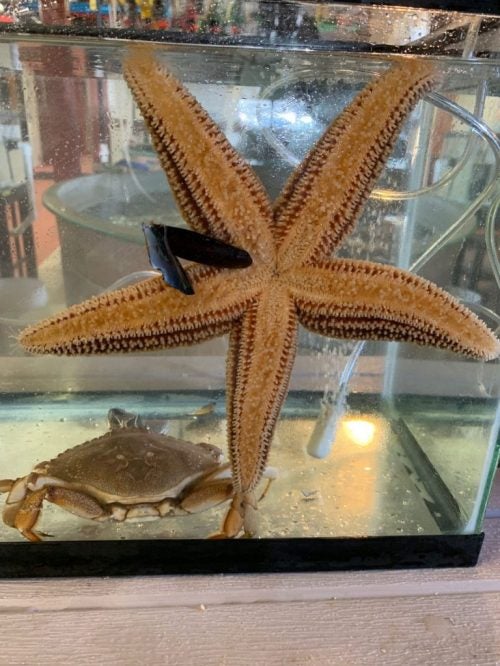Addressing predictive modeling knowledge gaps on predator-prey dynamics to improve information used in decision making (2019)
Principal Investigator: Coleen Suckling (FAVS, URI)
Collaborators: Ed Baker (GSO, URI), Kathleen Catreau (FAVS, URI), Marta Gomez-Chiarri (FAVS, URI), Austin Humphries (FAVS, URI), Conor McManus (RI DEM)
Funding Source: RI C-AIM (EPSCoR)
Rapid changes in the climate threaten the future of marine coastal ecosystems. Warming temperatures and ocean acidification are amongst the major seawater changes that strongly influence marine communities. However, much of our understanding of how communities respond to change have been extrapolated from predictive models built primarily upon published data. Such an approach is risky, particularly when attempting to enhance decision making at the regional, community or species level. Models are only as good as the quality of the data that is being entered and when parameterizing models, there is a need to ensure that the best available data, which considers key species, particularly those from the regional species pool.
The goal of this project is to address these gaps by contributing new information that will enhance models developed to predict changes in New England’s coastal ecosystem. There is strong evidence to show that coastal mollusks (e.g. mussels) are vulnerable to the effects of climate change (ocean acidification and warming) but there is little consideration on how key molluscan predator physiology and feeding behavior will be impacted, since this will influence molluscan community structures. The few studies which do take this focus fail to address the metabolic status of the predator and whether food intake can satisfy their energetic requirements. In this context, it is not known whether predators select larger and higher value prey with greater return for effort or opt for smaller and lower value prey with less return for effort. Any changes in predatory metabolic status under a future climate will strongly influence their predatory pressure on molluscan coastal communities and how they are structured. This information is urgently required for decision-making processes associated with their management.
In this project we are currently addressing this knowledge gap by focusing on key starfish and crab species that are known to predate on ecologically and economically relevant East-Atlantic coastal bivalve mollusks (mussels) using the University of Rhode Island’s Bay Campus aquarium facilities.
 Home
Home Browse
Browse Close
Close Events
Events Maps
Maps Email
Email Brightspace
Brightspace eCampus
eCampus



